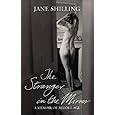- Amanda Craig
- On Being a Middle-Aged, Mid-List Novelist

You can look at this post on my website, www.amandacraig,com, look at this link http://www.amandacraig.com/pages/blog_01/blog_item.asp?Blog_01ID=257
or read it here:
ON BEING A MIDDLE-AGED, MID-LIST NOVELIST
« Go back to the blog homepage
Comments
That is a superb piece! As a forty something female novelist I was nodding at every sentence. I would love to add something brilliant but you just knocked so many important nails on the head there, there seems to be nothing else to say. Feel very comforted and encouraged - thanks very much. I will go back to my invisibility and muttering now.
Thanks Harriet and Molly, and welcome to my blog. So glad you enjoyed this and agree. Do pass it on...there are so many thousands of us either writing or trying to write and facing this.
This is wonderful. I started writing seriously at age 59. While I always loved writing, children, career and establishing our family financially took the first part of my adulthood. I now have the freedom to THINK, and to write about what I want to! Maturity gives me perspective in my writing that I think enriches it. I am not a novelist, but rather a columnist, but perhaps a book is percolating somewhere in my unconcious. Thanks for sharing this. molly
Post a comment
Writing Status Badges












Writing Status Badges












Featured Members (7)
Writing Status Badges


































